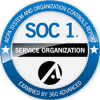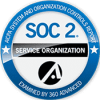Utilizing care coordination as a key component of your care strategy can combat risk, ensuring care for high-need/high-risk individuals is optimized and rising-risk populations are proactively identified so that health issues can be addressed before they become critical and even more costly.
Care coordination is particularly effective for the treatment of chronic diseases such as diabetes, obesity, and heart disease that affect about 60 percent of Americans. With as much as 90 percent of all U.S. healthcare costs going toward chronic disease and mental health treatment—a staggering $3.7 trillion a year according to the Centers for Disease Control and Prevention (CDC)—it is clear that a comprehensive, active approach to chronic disease management is needed to maintain health, avoid complications, and reduce the cost of treatment.
Page Content
What Is the Role of Care Coordination?
Treating chronic conditions is expensive for two main reasons: a higher volume of care, and increased emergency department and in-patient utilization. Implementing a care coordination program can be one of the most efficient and effective strategies to address the ongoing needs of populations with chronic diseases—and complex populations such as Medicaid and Medicare Advantage—and lower the total cost of care. Effective care coordination programs:
- Provide a more comprehensive, unified care experience, with treatment coordinated among primary care physicians, specialists, hospitals, long-term care facilities, and community resources. This approach eliminates information siloes, reduces redundant and unnecessary care, and improves patient satisfaction.
- Regularly engage with patients throughout their care to monitor, assure adherence, and educate on disease management and lifestyle choices to improve overall health.
- Intervene early for patients who have a diagnosed chronic condition or are at risk of developing a disease. Proactive treatment before a condition becomes an emergency reduces utilization and improves outcomes.
Read our blog post: Effective Care Coordination Addresses All Determinants of Health to Improve Health Equity
How Does Care Coordination Benefit Payers, Providers & Patients?
Effective care coordination requires collaboration across interdisciplinary care teams using a common care plan to ensure that individuals receive the right care at the right time, at the right place. The right care coordination software can help organizations:
- Improve outcomes by ensuring appropriate and timely care, managed effectively across payers and providers to improve overall well-being
- Reduce healthcare costs by avoiding unnecessary admissions, emergency department visits, and duplicate tests and procedures, saving costs for health plans and patients
- Manage chronic diseases with ongoing, comprehensive care including monitoring, medication management, and lifestyle recommendations
- Promote prevention and early detection through regular assessment to identify risk factors and address issues before they become acute and expensive
- Reduce care fragmentation that occurs when multiple, uncoordinated providers do not work together with common goals and treatment plan
- Improve communication among providers and community resources through information sharing and joint care plans to ensure that everyone remains informed
- Personalize care through customized care plans tailored to each individual’s specific needs, preferences, and circumstances
- Support patient adherence to treatment plans to better control conditions and improve overall health
- Enhance patient experience through patient engagement and education to create stronger partnership and drive satisfaction
- Improve health equity by addressing disparities in access to and quality of healthcare
What Does the Future of Care Coordination Look Like?
Technology companies like InfoMC are driving innovation in how care coordination improves quality, outcomes, efficiency, and the overall care experience. Some of the key trends influencing this innovation are discussed below.
Bidirectional Communication with Community Resources Makes Care Coordination More Effective
Bringing together medical and behavioral health providers with community-based resources is critical to effectively coordinating complex care and eliminating barriers to good health and equitable care delivery. But interactions with community resources needs to move beyond referrals to include a bidirectional exchange of information. Closing the loop with community resources will create a more collaborative and informed network of support that will benefit vulnerable populations and lead to a better care experience.
AI Speeds & Personalizes Care Coordination
Artificial intelligence (AI) has the potential to transform how care is coordinated and administrated. While basic data analysis can deliver insights that improve protocols and processes, AI and machine learning algorithms are being developed to advance these benefits to speed interventions and decision-making and enable more personalized treatment plans that will result in better care.
Seamless Integration and Interoperability Strengthens Care Coordination
Effective care coordination relies on interdisciplinary teams having the information they need to orchestrate quality care. Technology should support seamless integration across providers, payers, and community resources to ensure timely and comprehensive information sharing across settings that would make care coordination and delivery more effective.
With the Centers for Medicare and Medicaid Services (CMS) and Office of the National Coordinator for Health Information Technology (ONC) initiatives focusing on interoperability and data exchange, the spotlight is on secure information sharing. Innovations that improve interoperability will create a more connected and patient-centered healthcare system that gives rise to healthier individuals and communities.
Incedo™ Enhances the Care Coordination Process
InfoMC’s Incedo™ enterprise care management platform enables efficient care coordination and is an ideal solution for managing complex populations such as Medicaid, Medicare Advantage, and dual-eligible populations. Preconfigured for the Special Needs Plan (SNP) model of care, Incedo brings together payers, providers, and community resources to share information and collaborate to treat the whole person, improving outcomes and the care experience for even complex individuals. Automated workflows make the care coordination process more efficient, effective, and consistent to eliminate gaps and ensure the highest quality of care.
To learn more about how InfoMC can help you coordinate care, contact us today.








